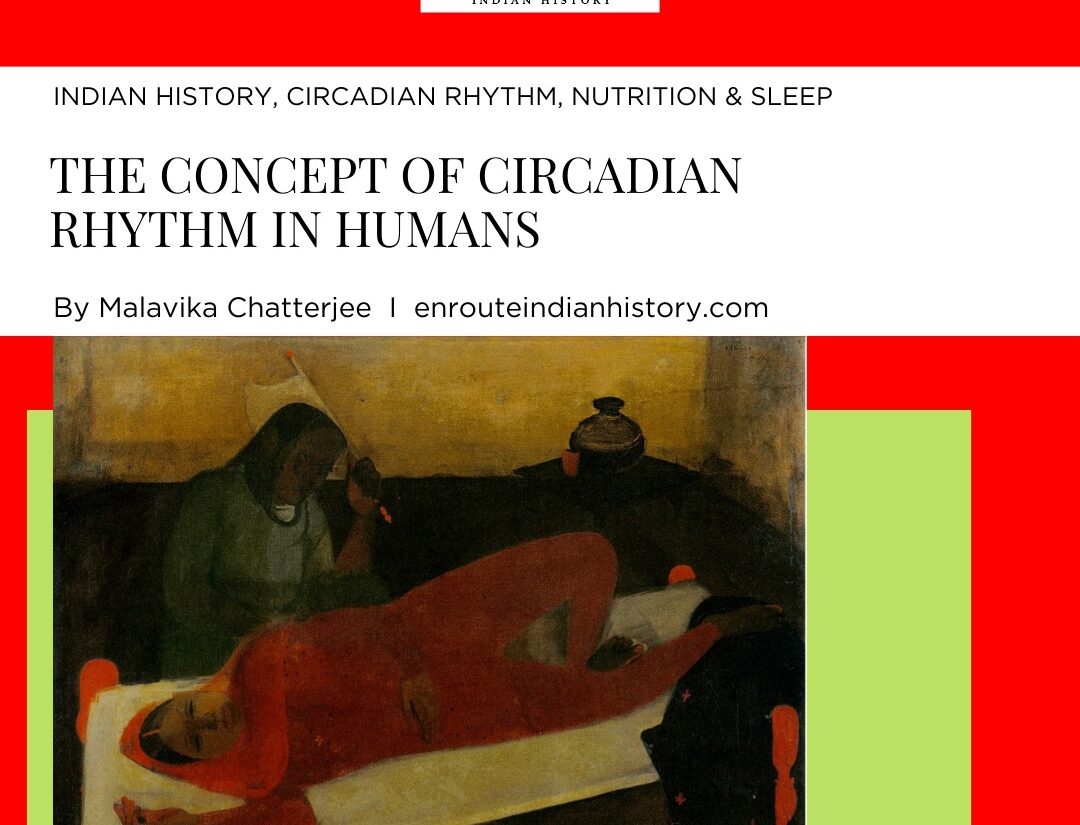
Sleep is an essential component of our daily life. It helps us to maintain our proper physiological functions and help in maintaining good health . Like traditional Traditional Chinese Medicine, sleep is viewed as a reflection of the balance between Yin and Yang energies within the body. It considers sleep to be a time when the body’s Yang energy, which is active and warming, recedes, allowing the Yin energy, which is passive and cooling, to dominate. This shift from Yang to Yin promotes restfulness and allows the body to rejuvenate. In Unani medicine, sleep, known as Naum, is considered an essential function that allows the body and mind to rejuvenate, making us refreshed and attentive when we wake up. Similarly, in Ayurveda, sleep, known as Nidra, is considered one of the three pillars of health, alongside food (Ahara) and celibacy (Brahmacharya).

Nidra and ayurveda
Sleep is essential for good health and well-being, providing strong resistance to combat minor diseases and imbalances over the long term.Sleep is defined as the unintentional absence of thought waves or information. Dreamless sleep is a state of awareness in which there is no sense of existence. Sleep is a state in which all mental and emotional processes cease. Sleep is a state of body and mind that occurs for several hours every night, during which the neurological system is dormant, the eyelids are closed, the postural muscles are relaxed, and consciousness is practically suspended.
As the foundation for all body processes, Ayurveda defines three dynamic pathophysiological constitutional types (doshas). Tridosha is made up of two words: tri and dosha. ‘Tri’ refers to “a group of three basic elements (Vata, Pitta, and Kapha)” and ‘dosha’ refers to “that which is capable of vitiation.” When Vata, pitta, and kapha are imbalanced, they cause sickness; when they are balanced, they maintain perfect balance and harmony in the body.
Sleep and its disturbances are described in ancient Ayurvedic literature such as Sushruta Samhita (approximately 100 B.C.-900 A.D, Charaka Samhita (roughly 300-500 A.D), and Vagbhatta (about 700 A.D) According to Sushruta, Nidra occurs when Tamas and Shleshma enter the heart, forcing the heart to slow down its activity, as illustrated by a lotus blooming and closing its petals around itself. According to Bhela Samhita, Nidra occurs when Shleshma and Tamas enter the Heart, Ears, and Eyes, and it is also claimed that only Praana, Mind, and Agni are active during sleep, and based on the sleep, Indriyas can also be active. ile Charaka Samhita states that the equilibrium of all dasa is required to have a sound sleep.
Importance of Proper Sleep
In Ayurveda, the impact of sleep extends across various aspects of life, influencing happiness, misery, nourishment, strength, virility, knowledge, and even the cycle of life and death. Proper sleep is viewed as a catalyst for happiness and longevity, comparable to the transformative power of real knowledge in a yogi. Similar to the importance of a balanced diet, Ayurveda stresses that proper sleep is vital for body maintenance. The state of one’s body, whether corpulent or emaciated, is intricately linked to the quality and pattern of sleep, as well as dietary habits.
Modern physiology aligns with Ayurveda’s understanding, recognizing sleep as essential for maintaining metabolic balance, thermal equilibrium, and immune competence. Furthermore, it is acknowledged for its role in learning and memory consolidation. However, contemporary insights also underscore the importance of not just the duration but the quality of sleep in promoting overall health. Poor sleep quality is identified as a significant factor contributing to the development and progression of various diseases, particularly lifestyle disorders.
Ayurvedic teachings emphasize not only the quantity of sleep but also its timing. Daytime sleep is generally discouraged, except during summer (grishmaritu). Certain individuals, such as those with excess fat, a propensity for oily substances, a shlaishmika constitution, or those suffering from Kapha-related imbalances or dushivisha, are advised against daytime sleep.
The multifaceted nature of sleep is evident in its consideration across all aspects of the nidan panchak, including nidana (cause), purvarupa (premonitory symptoms), rupa (manifestations), upshaya (remission), and samprapti (pathogenesis). Ayurveda describes various forms of sleep disorders, all characterized by unhealthy sleep patterns, encompassing improper timing, excessive or diminished sleep, and even the cessation of sleep.
Diseases and Sleep
–
Violating the recommended guidelines for daytime sleep in Ayurveda can lead to a range of health issues. These include serious conditions such as halimaka (jaundice), headache, timidness, heaviness of the body, malaise, reduced digestive power, hridyoplepa (a sensation of phlegm adhering to the heart), edema, anorexia, nausea, rhinitis, hemicrania, urticaria, eruptions, abscesses, pruritus, drowsiness, coughing, throat-related ailments, memory and intelligence impairment, obstruction of bodily channels, fever, and weakened sensory and motor organs. Additionally, there is an increased risk of enhanced toxic effects from artificial poisons.
Daytime sleep, especially before the restoration of normal health following purificatory therapy, can lead to complications, including anorexia, indigestion, suppressed digestion, staimitya (a feeling as if the body is covered with wet leather), anemia, itching, scabies, burning sensation, vomiting, malaise, impaired cardiac function, stiffness, continuous drowsiness, appearance of nodules, weakness, red coloration of urine and eyes, and a coating over the palate.
Ayurveda attributes day sleep to a perverted nature, exacerbating all doshas in the body and giving rise to various troublesome complaints such as cough, asthma, catarrh, heaviness of the body, limb aches, fever, and loss of appetite. Additionally, staying awake for late hours in the night can lead to symptoms (upadrava) resembling those of deranged vata and pitta.
Modern-day concepts about sleep
The ideal sleeping habit, as suggested by Acharyas, involves rising during “Brahma muhurta,” the last part of the night just before sunrise. This pattern aligns with the requirement to sleep early, a practice that seems to be diminishing in the present day. Unhealthy sleeping habits, influenced by technology, social media, extended working hours, night shifts, and stress, contribute to various mental and physical disorders.
Ayurveda emphasizes that sleep is not just about fulfilling a daily routine by clocking a certain number of hours; it involves a circadian process regulating critical functions like behavior, hormone levels, sleep, body temperature, and metabolism. Nobel Prize winners on circadian rhythm in 2017 highlighted the precision with which our inner clock adapts physiology to different phases of the day.
Research scholars affirm the correlation between late sleep patterns and secondary diseases, underscoring the need for a proper time and amount of sleep. In contemporary times, the rise in metabolic disorders, particularly obesity and diabetes, aligns with the age-old wisdom of Acharyas who identified sleep and diet as main contributors to these conditions. Thus, the holistic maintenance of the body necessitates not only a proper diet but also prioritizing healthy sleep practices.
How Ayurveda remedies sleep disorders
Ayurveda offers distinct remedies tailored to address various sleep disorders based on the dosha imbalance. Vata’s sleep disorder manifests as difficulty falling asleep, restlessness, frequent awakenings, and anxiety. To alleviate this, Ayurveda suggests calming practices like warm oil massage, meditation, and breathing exercises. Warm milk with nutmeg or cardamom and soothing music are also recommended. Establishing a regular sleep schedule, avoiding caffeine and alcohol, and consuming warm, nourishing, easily digestible foods can further enhance sleep quality.
Pitta sleep disorder is characterized by difficulty staying asleep, early awakening, heat sensations, and vivid dreams. Ayurveda recommends cooling and relaxing approaches, such as coconut oil massage, moonlight meditation, and the use of cooling herbs like mint or fennel. A rose water spray can also be beneficial. It’s advised to avoid bright lights and heat before bedtime, steer clear of heavy or oily foods, and opt for sweet, bitter, and astringent foods.
Kapha sleep disorder involves excessive sleepiness, difficulty waking up, lethargy, and a low mood. Ayurvedic suggestions include stimulating practices like dry brushing, sun salutations, and the use of spicy herbs like ginger or cinnamon. Citrus aromatherapy is also recommended. To improve Kapha sleep, avoid daytime napping, steer clear of sweet, salty, and sour foods, and opt for light, dry, and warm dietary choices.
Ayurveda recognizes sleep as a fundamental pillar of well-being, interconnected with physical, mental, and spiritual health. Highlighting sleep’s pivotal role, Ayurveda considers it one of the three pillars of health, emphasizing its influence on happiness, longevity, and the maintenance of bodily balance. Modern physiology aligns with Ayurveda’s wisdom, underscoring the significance of both quantity and quality of sleep for overall health. However, contemporary challenges, such as technology-induced unhealthy sleep patterns, contribute to various mental and physical disorders. The ancient Ayurvedic insights into diseases caused by improper sleep find resonance in current research on sleep disorders and their impact on metabolic health. As we navigate the complexities of modern life, a holistic approach to health must include adherence to Ayurvedic principles, promoting not only a balanced diet but also prioritizing healthy sleep practices for optimal well-being.
Bibliography
- Prajapati S, Paliwal M (2019 ) Significance of sleep: ayurvedic perspective. Int J Health Sci Res ; 9(1):240-245.
- Shukla, Akhilesh & Shukla, Anupama & Baghel, Arjunsingh & Vyas, Mahesh & Vellela, Jessica & Dharmarajan, Prasanth. (2014). Relevance of Sleep for Healthy Living: An Ayurvedic Perspective. 3.
- Rupali S Mane et al: (2018) A Review Of Benefits of Sleep. International Ayurvedic Medical Journal (online)
- Sankanagoud Patil, Samyam SG, Pallavi SL.(2022) Nidra -A Literary Review. J Ayurveda Integr Med Sci;9 :147-150.
- Irshad N, Singh N.R, Varsakiya J “Insomnia and Its Ayurveda Management– A Critical Review” IRJAY. [online]2023;6(5);59-69. https://irjay.com. DOI link- https://doi.org/10.47223/IRJAY.2023.6510
- “Ayurveda for Sleep: Remedies and Medicines for Restful Sleep.” Accessed December 10, 2023. https://www.keralaayurveda.biz/blog/ayurveda-for-restful-sleep.
- Ayurveda, Mekosha. “CHAPTER 16: AYURVEDA & SLEEP.” Mekosha, July 24, 2020. https://mekosha.com/chapter-16-ayurveda-sleep/.
- Healthline. “A Guide to Sleep Based on Your Ayurvedic Type,” April 20, 2021. https://www.healthline.com/health/sleep/an-ayurvedic-guide-to-sleep.
- March 27, 2024
- 11 Min Read





















